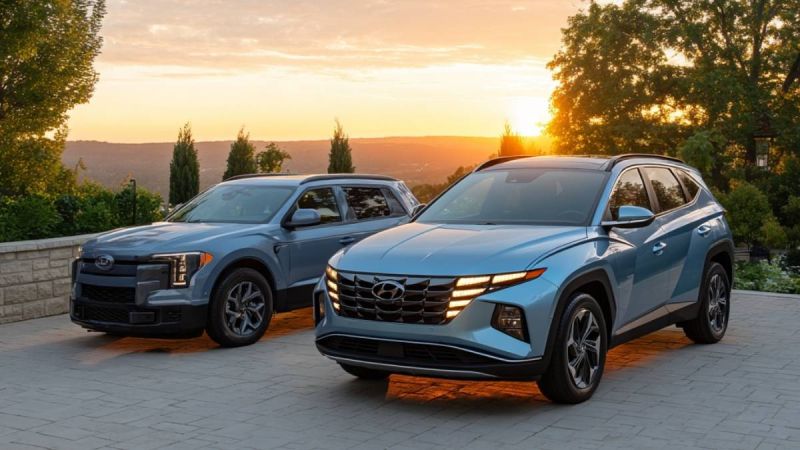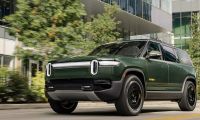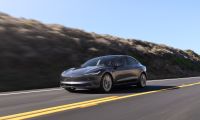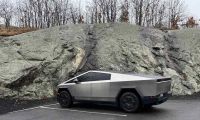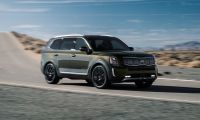While the auto industry's gaze seems fixed on an all-electric horizon, a powerful counter-narrative is unfolding in showrooms and on sales charts. The humble hybrid, once seen as a mere stepping stone to a fully electric future, is experiencing a remarkable resurgence. Leading this charge are Ford and Hyundai, two automotive giants who are proving that the road to electrification is not a one-lane highway. Their impressive second-quarter sales figures for 2025 reveal a booming demand for hybrid vehicles, often outpacing the growth of their all-electric counterparts and highlighting a pragmatic consumer base that isn't quite ready to make the full leap to EVs.
Ford And Hyundai Hit It Out Of The Park With Hybrids
For Ford, the second quarter was a testament to the power of electrifying its icons. The automaker saw its hybrid sales soar, driven by the immense popularity of the F-150 PowerBoost and the compact Maverick Hybrid. The Maverick, in particular, has been a runaway success, proving that an affordable, fuel-efficient pickup is a winning formula. Ford's strategy of integrating hybrid technology into its most beloved and best-selling models has been a masterstroke. Instead of asking customers to embrace an entirely new and unfamiliar vehicle, Ford is offering a more efficient version of the trucks they already know and love. This approach has resonated with buyers who are looking for practical ways to save on fuel without sacrificing the utility and familiarity of a traditional pickup.
Similarly, Hyundai has been riding a wave of hybrid success. The South Korean automaker, along with its sibling brand Kia, has been aggressively expanding its electrified lineup, and the results are showing. Hyundai's hybrid and plug-in hybrid models achieved new sales records in the first half of 2025. Popular models like the Tucson Hybrid and Santa Fe Hybrid have been flying off dealer lots. Hyundai's success can be attributed to its "all-of-the-above" strategy, offering consumers a wide spectrum of electrified options, from traditional hybrids to plug-in hybrids and full EVs. This allows them to cater to a broader range of customer needs and comfort levels with electrification. For many buyers, a Hyundai hybrid offers the perfect blend of improved fuel economy and the peace of mind that comes with a gasoline engine for longer trips.
With Some Exceptions Hybrids Continue To Outperform EVs
The booming sales of hybrids from both Ford and Hyundai stand in contrast to the more moderated growth, and in some cases, decline, of the broader EV market. While EV sales are still growing, the pace has slowed, and automakers are facing challenges with inventory and pricing. This divergence in sales trends points to a significant portion of the car-buying public that is interested in electrification but remains hesitant about going all-in on EVs. Concerns about charging infrastructure, range anxiety, and the higher upfront cost of electric vehicles are still very real for many consumers. Hybrids, in this context, offer a compelling and less intimidating alternative. They provide a tangible improvement in fuel efficiency and a reduction in emissions without requiring any changes in driving habits or a reliance on a still-developing charging network.
However Long Term Hybrid Risks Remain
However, the long-term prospects for hybrids are a subject of debate. Critics argue that they are overly complex machines, saddled with the weight and intricacy of two separate powertrains. They contend that hybrids are a transitional technology, a bridge that will ultimately be dismantled as the industry moves towards the simpler and more efficient architecture of pure electric vehicles. There is some validity to this argument. From a manufacturing and maintenance perspective, a vehicle with both an internal combustion engine and an electric motor is inherently more complex than a vehicle with just one.
Despite this complexity, the current market reality suggests that hybrids will remain a significant part of the automotive landscape for the foreseeable future. The consumer demand is undeniable, and automakers like Ford and Hyundai who are meeting that demand are reaping the rewards. For now, the "and" solution of a hybrid seems to be more appealing to a wider audience than the "or" proposition of a fully electric vehicle. As battery technology improves and charging infrastructure expands, the scales will likely tip further in favor of EVs. But for the time being, the hybrid is king, and Ford and Hyundai are wisely riding the wave.
Wrapping Up
The second quarter of 2025 has been a powerful reminder that the path to an electrified future is not a straight line. Ford and Hyundai have demonstrated the immense value of a diversified electrification strategy, with their booming hybrid sales highlighting a significant and pragmatic segment of the market. By offering compelling, efficient, and familiar hybrid versions of their most popular models, they have found a winning formula that meets consumers where they are today, rather than where the industry hopes they will be tomorrow.
Disclosure: Image rendered by Gemini
Rob Enderle is a technology analyst at Torque News who covers automotive technology and battery developments. You can learn more about Rob on Wikipedia and follow his articles on Forbes, X, and LinkedIn.
Set as google preferred source


